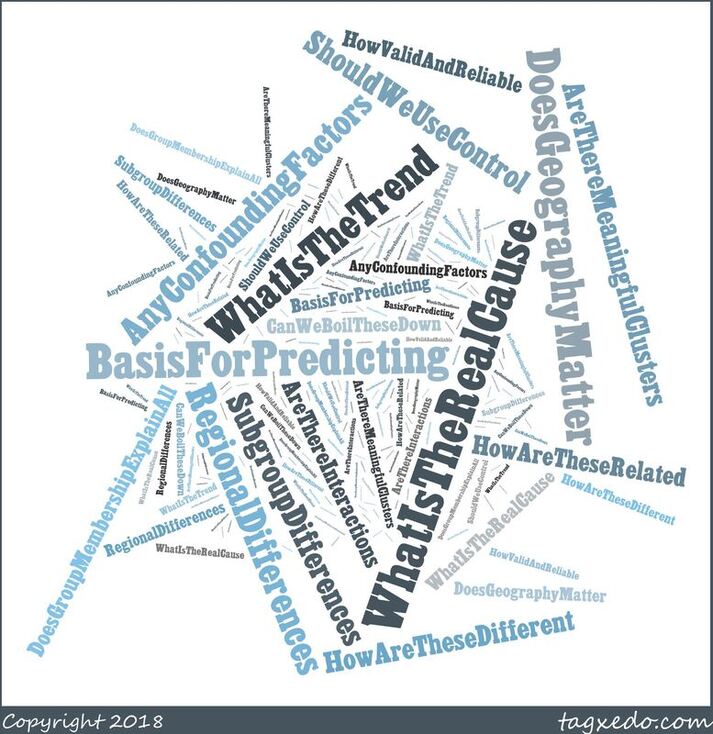The way a research question is asked can make a great difference. It's only natural that a substantive research question may need a bit of translation when it comes to data analysis. In addition, many people are not aware of the range of questions that are answerable using statistical analysis. (One might also call this predictive modeling, predictive analytics, data mining, or machine learning).
The following list presents a catalog of common types of questions.
The following list presents a catalog of common types of questions.
1. What sort of change has occurred over time?
2. How valid or reliable are the indicators used for a certain purpose?
- Does this represent that -- accurately and consistently enough for my purposes?
3. How do my groups differ?
- Is one group's average, or incidence, or level of risk, higher than the other's?
- Does one group have much more variability than the other?
- What differences might we find among geographical areas?
4. What relationships do we see "at face value"?
- How strongly is quantity A correlated with quantity B? E.g., Does more education tend to mean greater prosperity?
- Can we effectively predict Y if we know A, B, C, and D for a given case?
- Does the relationship between A and B change depending on the group or region in question? I.e., Are there "different slopes for different folks?" (statistical interactions)
5. Can we go beyond mere correlation to assess cause and effect?
- Even though greater education tends to mean greater prosperity, which is causing which?
- What kind of education-prosperity connection do we see if we account for (control or adjust for) as many other relevant variables as possible?
6. Can we establish webs of relationships?
Don't see your question? Contact us and we can talk about research approaches that will be most meaningful in your context.
- Is there a basis for taking a large set of variables (or characteristics or responses or measurements) and distilling them into just a few factors?
- Is there a basis for clustering people (or schools or nations or events) to create groups in which each case has a similar profile?
Don't see your question? Contact us and we can talk about research approaches that will be most meaningful in your context.
